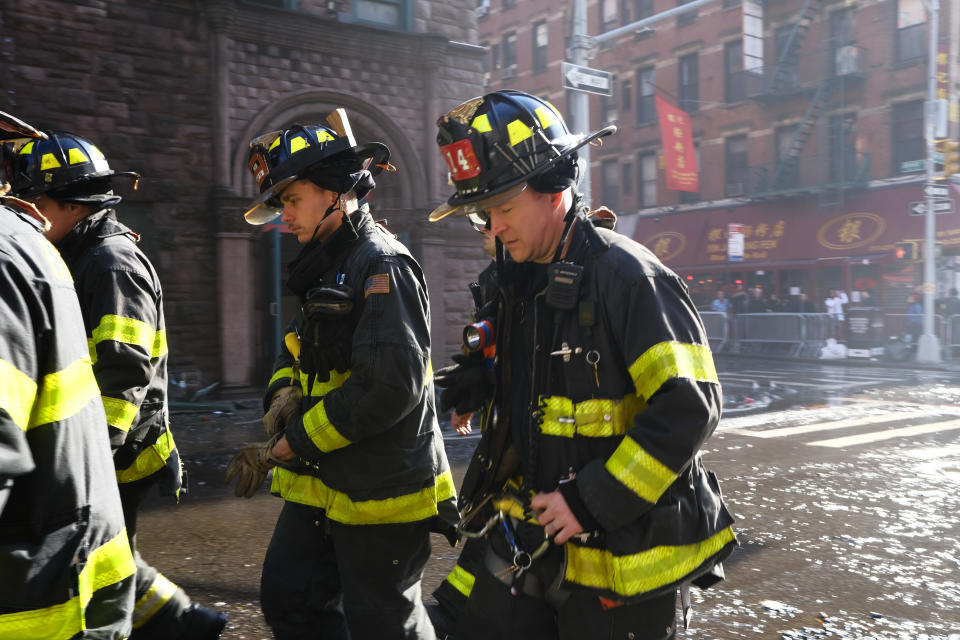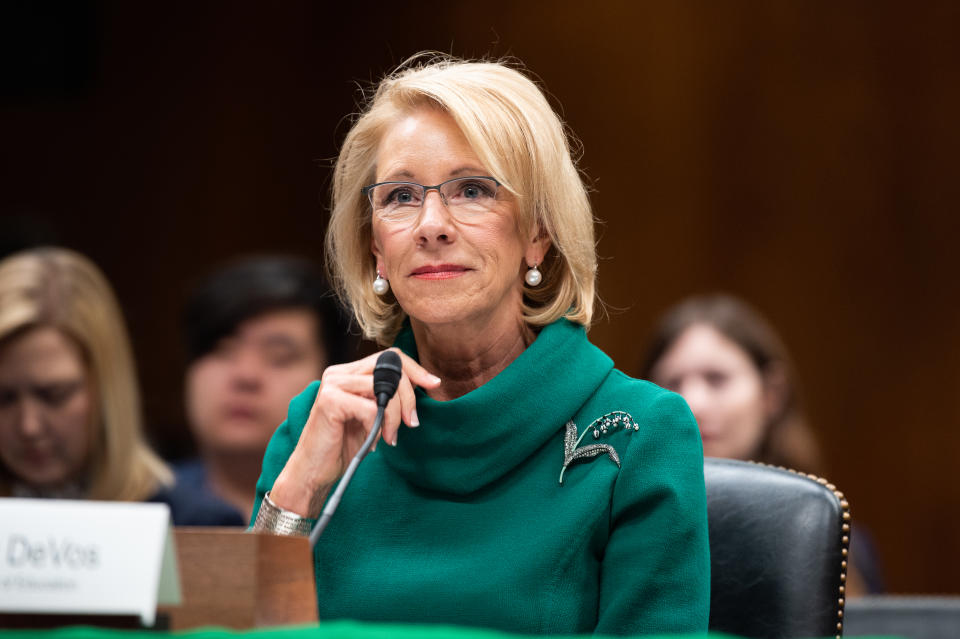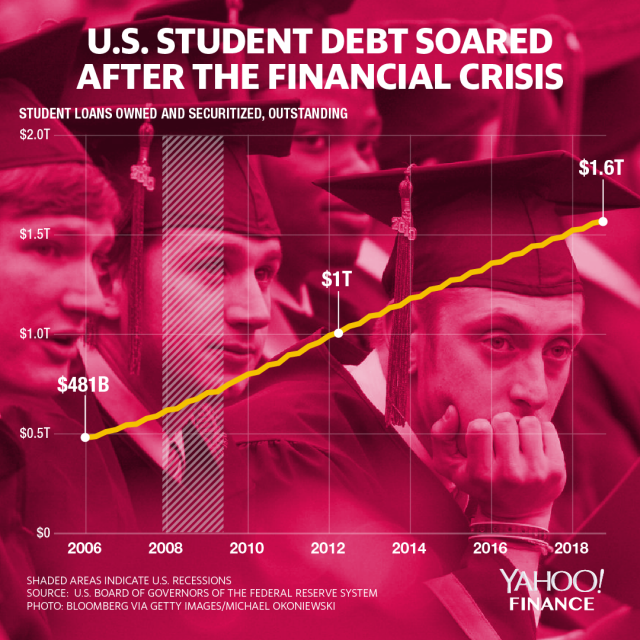Trump administration plan to sunset the Public Service Loan Forgiveness Program would be 'devastating,' expert says
The Trump administration’s plan to cancel the Public Service Loan Forgiveness Program (PSLF) aimed at helping public service workers would be “devastating” to many, one expert said.
If the administration succeeds in axing the program, “ultimately I think we broke our promise to people that made a commitment to our country, to serve people, and I think that’s gonna be a really devastating thing if that ever happens,” Aoife Delargy Lowe, director of law school engagement and advocacy at D.C.-based nonprofit Equal Justice Works, told Yahoo Finance.
The “promise” made by Congress in 2007 was that if a student loan borrower joined the public service — such as in teaching, or nursing, or any form of government work — they would be entitled to have their student loans forgiven by the Education Department (ED) after they make 120 qualifying payments.

‘Incentivizing one type of work ... over another is not called for’
This is the third time the Trump administration has proposed cancelling the Public Service Loan Forgiveness (PSLF) program, Delargy Lowe said.
“Our proposal is to sunset the public service loan forgiveness program,” Education Secretary Betsy DeVos said this week during a Senate hearing on appropriations for the Trump administration’s FY21 budget request. “The administration feels that incentivizing one type of work and one type of job over another is not called for. And we have a demand in our over 7 million jobs going unfilled today, and favoring one type of pursuit over another type of pursuit philosophically doesn’t line up with where we are.”
It would not be a mass cancellation of the program though.
In this year’s proposal, the Trump administration wants to cancel the PSLF program for anyone who takes out their first student loan on or after July 1, 2021. Those with loans taken out before that date, and are still studying are still eligible.

For new borrowers, the administration proposes to put them on a single income-driven repayment (IDR) plan, and after paying making “affordable monthly payments based on their income,” their balance will be forgiven after 15 years of repayment.
“They’ve justified eliminating the early forgiveness by pointing to their consolidated IDR plan where undergraduate borrowers would pay 12.5% of their income for 15 years as opposed to 10% for 25 years for example,” Antoinette Flores, director for Postsecondary Education at D.C.-based nonprofit Center for American Progress, told Yahoo Finance. “While the faster forgiveness may benefit some, it also would come at higher monthly payments which might be an issue for some borrowers and provides no relief to graduate students who pay over a longer period of 30 years. If you are a teacher that has gotten a master’s degree for example, this doesn’t help.”
‘We need to make it viable for them’
For many of those applying for the PSLF program — which runs the gamut from veterinarians and nurses — the goal goes beyond loan forgiveness.
“They were always wanting to go into public service,” she explained. “It was ultimately a calling to them… and we need to make it viable for them to actually do this work.”
But ever since the first batch of borrowers became eligible for forgiveness in recent years, the program has been panned as a failure, because it had a 98.6% rejection rate.
According to the Education Department’s most recent data as of Dec. 31, 2019, 126,817 borrowers submitted 161,328 applications, out of which 2,246 were approved — which translates to an approval rate of roughly 1.4%.

A big part of why so many applications were thrown out was because the borrower had not made enough qualifying payments monthly — all 120 of them — or had missing information in their paperwork, or that their loans weren’t eligible.
DeVos alluded to the complexity of the issue during the hearing on Thursday.
“Just to be clear on the existing program, our commitment is to ensure that those who are part of the program today and who meet the qualifications now you all made it a very difficult program to qualify for,” DeVos stated, referring to Congress.
But the rejection rate would likely decrease over time, Delargy Lowe contended, as the requirements of the program became clearer and more borrowers filed more complete paperwork.
—
Aarthi Swaminathan is a reporter with Yahoo Finance. She can be reached at aarthi@yahoofinance.com. Follow her on Twitter at @aarthiswami.
Read more:
‘I was misled’: Public school teacher tells Congress about student debt nightmare
U.S. teachers increasingly struggle to find affordable housing: Study
Read the latest financial and business news from Yahoo Finance
Follow Yahoo Finance on Twitter, Facebook, Instagram, Flipboard, SmartNews, LinkedIn, YouTube, and reddit.

 money
money 
